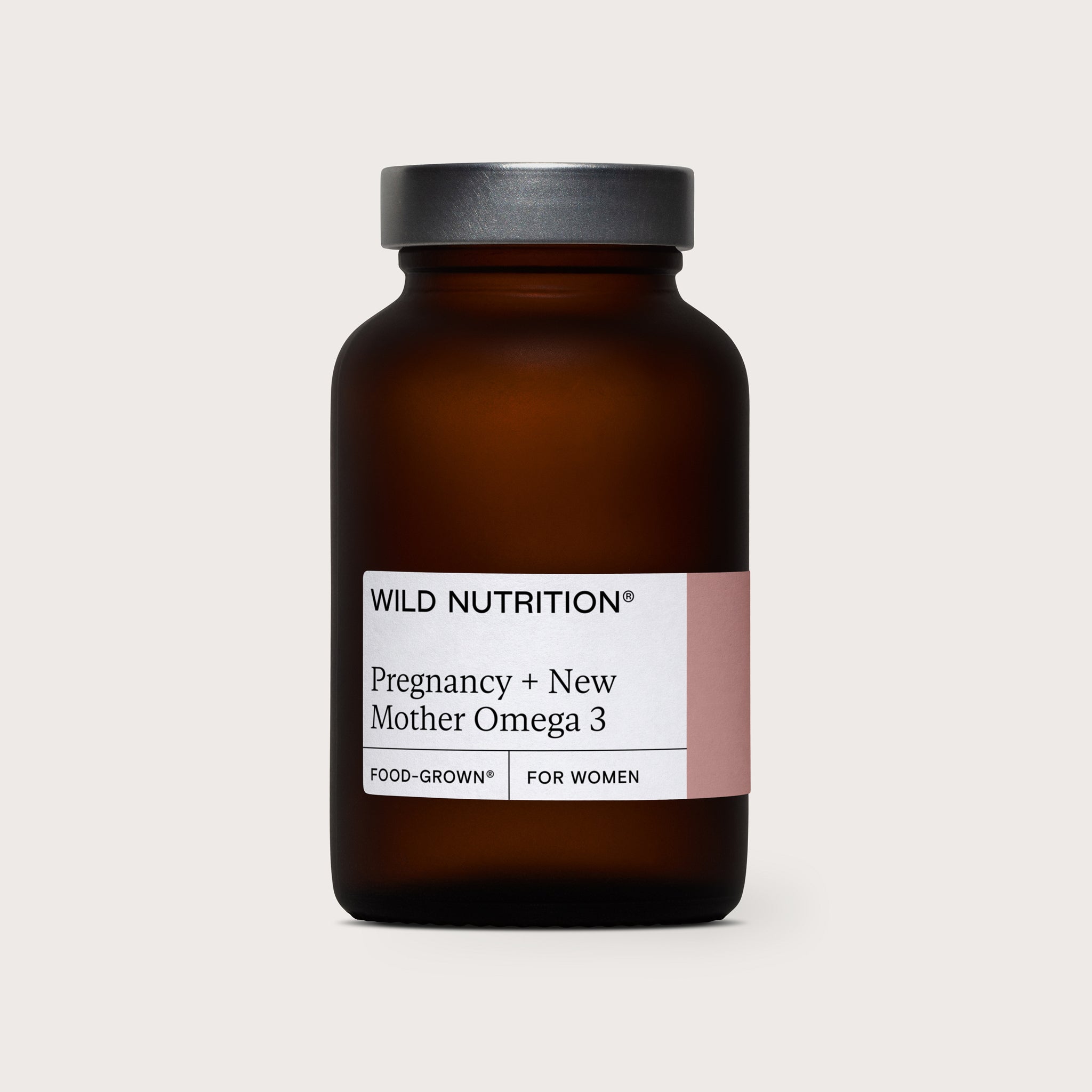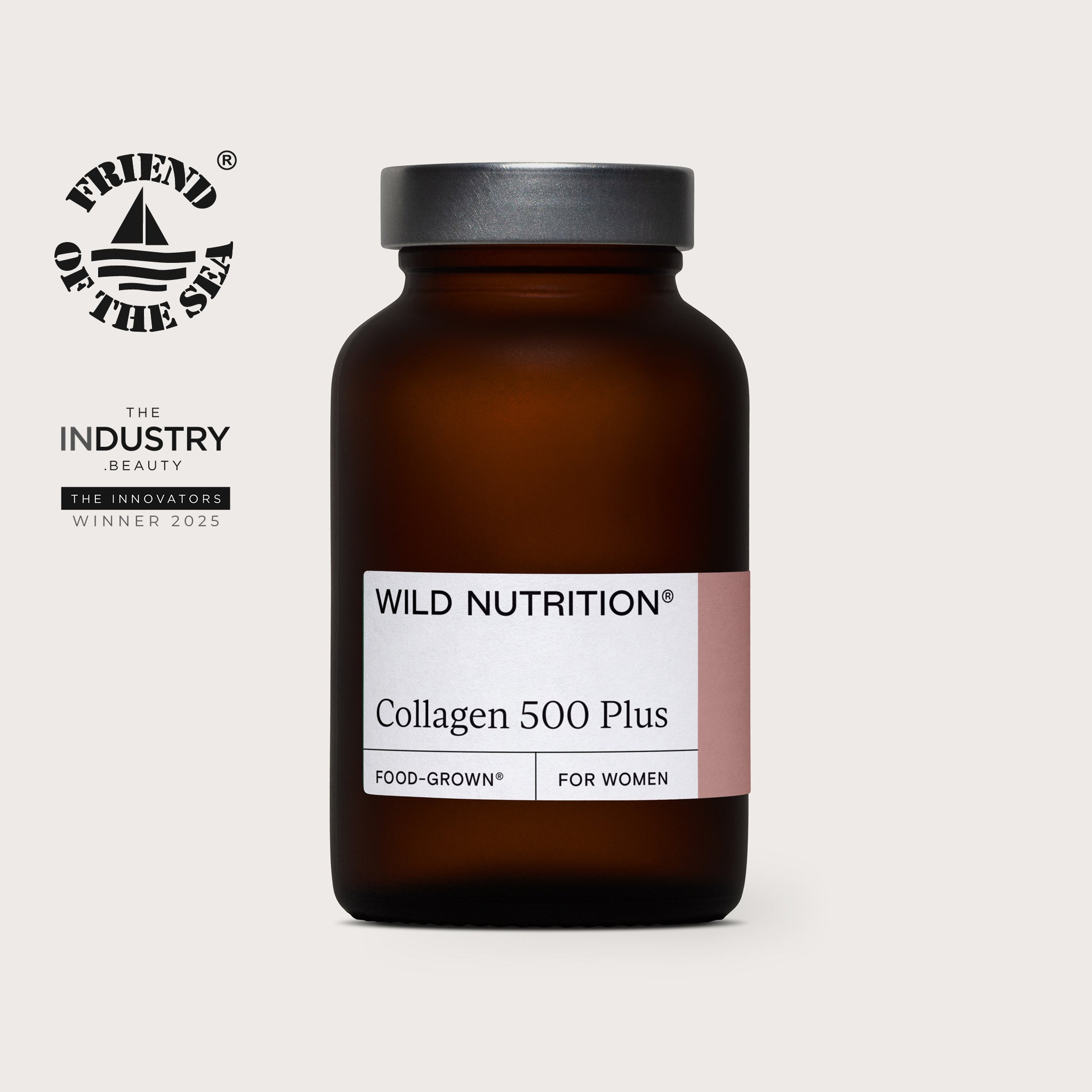
4 nutritional demands of men over 45
Whilst the need to support women's health through changing life cycles such as pregnancy or menopause are well understood. Men's health, and their changing needs throughout life are debatably less supported.
Supporting men's health with a wholesome diet and supplementation throughout these changing life stages demands as much focus as is given to women. Our team have researched and developed this bespoke formulation to reflect the growing nutritional need of this age group, including elevated levels of certain nutrients to support heart health and cognitive function such as memory and decision making. We have a multi nutrient designed specifically for men over 45. Here are 4 nutritional demands that these nutrients will help to meet...
1. Cholesterol and Cardiovascular Health
- The latest research findings on Vitamin D for heart health are encouraging. One recent study found that vitamin D improved the hearts' ability to pump blood around the body and the amount of blood pumped out of the chambers of the heart with each beat. However, with only 10 % of our requirement of vitamin D coming via food, we should all be supplemented through the darker months; and those with limited access to sunlight in the summer may need to continue.
- As men age, those with elevated cholesterol may be prescribed statin medication by their GP. Unfortunately, statins block the body’s own natural production of Coenzyme Q10, an enzyme required to protect the heart, assist with energy production and work as an antioxidant. Our capacity to produce Coenzyme 10 also declines as we age, regardless of medication so supplementation may be helpful.
- Reishi mushroom has been used in the orient for thousands of years, named as the ‘mushroom of immortality’ and has been shown through research to support healthy cholesterol and blood pressure.
2. Blood Sugar
- Blood sugar issues over time may lead to an increased appetite and an accumulation of fat, particularly on the abdominal area. This can be the ‘belly fat’ some men complain about! Poorly regulated blood sugar may also lead to energy highs and lows, and because of the mechanics of blood sugar function – this induces a stress response in the body and can increase ‘belly fat’. Since men are more at risk of diabetes, following a diet that supports good blood sugar is essential. Supplementing with the mineral chromium contributes to the maintenance of normal blood glucose levels. Men will want to avoid moving into the territory of ‘insulin resistance’ (pre-diabetic) state – the preferred position being ‘insulin sensitive’.
3. Hormone balance, the prostate and healthy inflammation
- Levels of the main sex hormone, testosterone, decline with age but other hormones more associated with female health like oestrogen – actually increase.
- As well as supporting testosterone levels and the immune system, research also shows that zinc is able to inhibit the activity of an enzyme that converts normal testosterone into an ‘unwanted’ form of testosterone that is negatively associated with changes in prostate size or health. Zinc uptake may be impaired by oestrogen's, so it's essential that men’s diets are rich in zinc. Zinc foods include meat, fish (especially seafood), nuts, seeds (especially pumpkin) and vegetables. As well as taking a multivitamin, it can be worth topping up levels by taking a separate capsule of Zinc from time to time.
- It’s important that men moving into middle age, manage their intake of environmental oestrogen's as these can affect male hormone balance by acting as ‘endocrine (hormone) disruptors. NAC (N-Acetyl Cysteine) - a precursor to the antioxidant amino acid glutathione has been shown to support liver function and detoxification. This may assist with removing unwanted environmental oestrogen's which are non-beneficial to men.
- Hormone balance and the way the body manages a healthy inflammatory response also requires good fats. Men should be encouraged to eat a diet rich in Omega 3 (fish or flax). It can be as simple as adding 2-3 portions of oily fish per week to meals (trout, salmon, mackerel, sardines, kippers) or supplementing if more therapeutic levels are required or eating fish isn’t preferential.
4. Energy, brain, mood and managing life’s pressures
- Some men may have extra energy and stress-management requirements – particularly if they are feeling the extra pressures of work, finances and even becoming fathers later in life. Magnesium helps with energy and a reduction of tiredness and fatigue and is especially good for those who are long-term low on good sleep or generally feeling squeezed by the pressures of a busy life.
- B Vitamins (found in meat, fish, beans/lentils and vegetables) such as B3 are required for normal psychological function and vitamin B5 is required for mental performance. Traditionally in India, men have always taken the herb ashwagandha to support the ‘spirit’ the demands of life upon the body. Vitamins folate, B6 and B12 are all required for healthy homocysteine. Elevated homocysteine has been linked to issues with the brain like cognitive impairment i.e memory and thinking.
- Don’t forget ‘good’ essential fats like omega 3 too – since the human brain is about 60 % fat!












